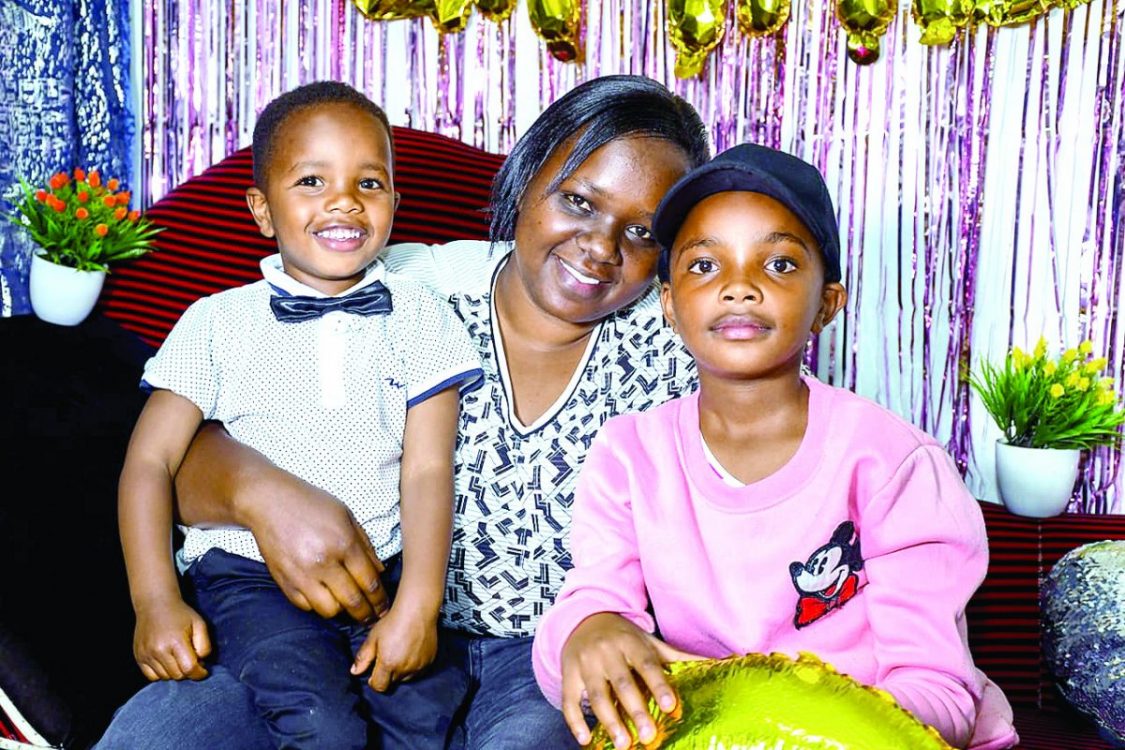How traumatic birth experience affects mother-child bond

Giving birth to a child is exciting, but also one of the most painful experiences in a woman’s life. Yet, the long-term effects that trauma can have on millions of new mothers are still largely ignored.
When 30-year-old Margaret Gichuki got pregnant with her first child, all she hoped and prayed for was a safe delivery. The experience that she went through, however, during her daughter’s birth was something that she will live to remember.
It was in 2013 when she delivered a baby girl weighing 4.6 kilogrammes after labouring for more than 12 hours. “When my water broke and it was time for delivery, my baby’s head came out, but the rest of her body got stuck. The medics had to perform an episiotomy to help her out. It was so painful to an extent that I passed out. I also lost a lot of blood. Since then, carrying a pregnancy to term became a tough order,” she explains.
Margaret has suffered three miscarriages and a stillbirth at 28 weeks.
Due to the trauma she suffered following the birth of her daughter, she hated it whenever she cried and didn’t like breastfeeding her.
“Motherhood has been both sweet and sour for me. It has been a long endless journey of healing, learning, unlearning and self-discovery,” says Margaret, a hotelier by profession.
Piling pain
She offers: “When I got pregnant with my son, emotionally, I had not yet gotten over the pain that I went through with my first pregnancy. However, my ex-husband wanted another baby so much and since I was still young and naïve, I gave in to his demands. He had threatened to get another child outside our marriage if I didn’t agree to it. I feared being left alone, and was looking for fatherly love in the wrong person, which I missed while growing up since my dad was always away from home due to work and other church activities. So, I gave in after a miscarriage. I tried to tell him to give me more time, but he objected. He couldn’t even wait for me to heal since he said I was denying him his conjugal rights. The pain and trauma kept on pilling and affected me emotionally. This exploded after our separation. It is so painful to sire a child for a man who doesn’t love you right.”
The pregnancy journey and delivery of her second baby, a son, was a difficult one.
Emergency caesarian section
“I had low blood pressure and at some point, the baby wasn’t growing in my womb. I was admitted at Margaret Kenyatta wing Provincial General Hospital in Nakuru for six weeks. Doctors were suggesting that they terminate the pregnancy, but I refused to give up. He was born at 40 weeks. After a failed induction, I went in for an emergency caesarian section (CS) and after the procedure; my baby was taken straight to the High Dependency Unit since he had ingested dirt (meconium). After one month, I developed an infection on the CS wound. It was oozing pus from inside. The doctors had to open it up to clean the pus. It was so painful and traumatic. I couldn’t sleep. I experienced severe headaches and the surgeon recommended that I take coffee to ease the headache. Due to the high caffeine levels in my breast milk, my son could also not sleep, hence I strained a lot,” Margaret explains.
Today, her children are nine and three years old. “I am yet to overcome all the pain. Parenting alone is also not easy,” she says.
Dr Catherine Amulundu, a Clinical Psychologist and Addiction Management Specialist says the issue of trauma suffered by pregnant women through pregnancy and child birth is a real problem.
Different outcomes
“Some women have difficult pregnancies and may have to be bedridden throughout the entire duration. There are those who suffer from medical conditions such as Hyperemis gravidarum, high blood pressure in pregnancy (pre-eclampsia and eclampsia), gestational diabetes (high blood sugar in pregnancy). Others may get psychological disorders such as depression. During the birth period some women, who have difficult labour and delivery suffer from birth related trauma. All these have different effects on the woman, which will depend on various factors such as age, marital status, circumstances of the pregnancy whether planned or unplanned, their psychological state, economic status of the woman and the level of social support available to them,” explains Dr Catherine.
The expert shares how the effects are wide, but it is important to note that the majority of the women are resilient and they will get out of their traumatic experiences and form a strong bond with their child.
She offers: “Some women actually feel a lot of attachment to their children born over difficult circumstances because they see them as miracle babies. Others always feel that their baby is vulnerable and become over protective of them, not wanting any harm or difficulty to come on their. Even when such children are all grown up, some mothers will keep on telling the story of how they suffered to get this child and they remain quite attached to them.”
Margaret confesses to have great attachment to her children and shares how she strives to give them the best in life, despite job challenges.
However, a smaller percentage of mothers tip over to mental health problems such as post-partum blues or peuperial psychosis. These mothers will find it difficult forming the mother/baby bond. They may find it difficult to breastfeed or even take care of the baby. “What such mothers need is a lot of psychological support and social support to take care of their immediate needs. They need a lot of patience and reassurance. And they will need to be assessed by a professional for peuperial psychosis, which is a psychiatric disorder that should be managed medically. Those with medical conditions should receive appropriate attention. Over time, most mothers will adjust and bond with their child/children,” says Catherine.












